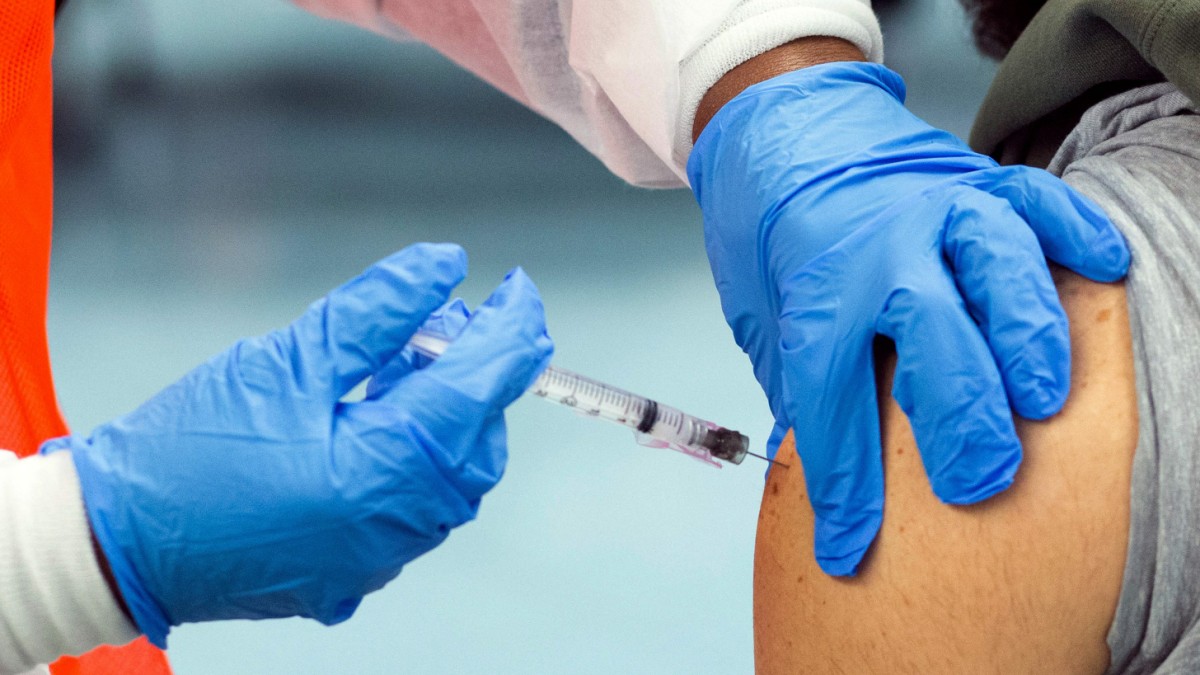Both the vaccine from Biontech and that from Astra Zeneca are highly effective against the delta variant of the coronavirus, British researchers report in the specialist magazine New England Journal of Medicine. According to this, the effectiveness of the mRNA vaccine from Biontech against symptomatic diseases with delta is 88 percent, compared with 93.7 percent against the alpha variant. Astra Zeneca’s vector vaccine protects 67 percent against developing symptoms after infection with Delta, compared with 74.5 percent against alpha.
Overall, the delta variant restricts the effectiveness of the vaccine only moderately, emphasize the researchers. However, this only applies if two doses of the vaccine are injected. If vaccinees only attend one appointment – whether with Biontech or Astra Zeneca – their protection against Delta is only around 30 percent, according to the study, 19 percentage points less than against the Alpha variant at one dose. In view of the widespread use of the delta variant, efforts should therefore focus on giving two doses of the vaccines, especially to high-risk patients.
The authors of the study, including those from the health authority Public Health England, used data from the national vaccination register in England for their analysis and compared them with reported symptoms and PCR tests for the various variants. However, the researchers do not differentiate between mild and severe courses of Covid-19. Overall, however, scientists assume that vaccination with all vaccines approved in Germany still protects very well against severe courses, even with Delta.
Greater viral load, heavier courses: What makes Delta so dangerous
The data from the British researchers also shows the rapid spread of the delta variant: in mid-May, it made up 93 percent of new infections in England. This variant of Sars-CoV-2 was first discovered in India in December 2020 and has meanwhile brought the country’s health system to the brink of collapse. At the height of the latest wave in May, it caused around 400,000 new infections and 4,000 deaths per day in India. It has now been slowed down significantly, but the country still records around 40,000 new infections per day.
According to the World Health Organization, the delta mutant is currently circulating in 124 countries. Two new studies from China and Canada confirm the dangerousness of the variant. Both works were published as preprints, so they have not yet been independently assessed.
In China, people who were in quarantine after contact with a Delta infected person were examined. The PCR test was positive for them after an average of four days instead of six days, as was the case with the early variants. In addition, the viral load was 1200 times higher in the first positive test than in the original virus variants. “This suggests that this worrying variant may reproduce more quickly and be more contagious in the early stages of infection,” the WHO said.
According to the Canadian study, Covid-19 disease with the Delta variant also harbors higher health risks than infections with previous Sars-CoV-2 mutants. The risk of a course requiring hospitalization was 2.2 fold increased and the risk of needing intensive care almost four times greater. The risk of death is therefore increased by a factor of 2.4.
Worldwide, the number of reported new corona infections rose by twelve percent to around 3.4 million in the week up to July 18. The largest number of new cases recorded were recorded in Indonesia (plus 44 percent) and Great Britain (plus 41 percent). The WHO names four reasons for the increase: the new highly contagious virus variants, the relaxation of corona protective measures, more social contacts and the high number of people who have not yet been vaccinated because vaccines are unevenly distributed between rich and poor countries.
Ricardo is a renowned author and journalist, known for his exceptional writing on top-news stories. He currently works as a writer at the 247 News Agency, where he is known for his ability to deliver breaking news and insightful analysis on the most pressing issues of the day.












